Our Solutions Help To Simplify V Cycle Of Automotive Development Process
- By Sharad P Matade
- June 22, 2021

Over the last three decades, Vector has been supplying tools and services that give engineers the decisive advantage to make challenging and highly complex designs and develop automotive products as simple and manageable as possible. Today, the company is working on various fronts from e-mobility to connectivity, cyber security to ADAS and will continue to work on the new areas which will drive the future of mobility. “Vector is also working on identifying the challenges that a customer could face in the future in the context of these trends and is working as a partner with the customers to overcome these challenges,” said Chandra Nataraja, Managing Director, Vector Informatik India. Nataraja also emphasises the need of ‘real R&D development’ at the local level in India, instead of being followers and adapters.

Q) We are coming across the word “complexity” often in the automotive industry? How does Vector help in simplifying the process in engineering, design, testing, validation and calibration?
Chandra Nataraja: At Vector Informatik, more than 3,000 employees across 31 locations worldwide support manufacturers and suppliers of the automotive industry with a professional platform of tools and software components. Our solutions are used by engineers of automotive OEMs, Tier-1 suppliers and other software organisations undertaking the development of automotive electronics.
There is increased complexity in the automotive space, especially with the software running in cars, for which development teams need to have an overview of their ideas being realised into technologies. There is a lot of toolchain and structure development, not to mention the standards that are being adopted. Vector is a part of several standardisation groups and offers solutions across the complete V cycle of automotive development process, including system engineering, design, testing, validation and calibration, which helps to simplify the processes for the customers.
To elaborate further, the ECU testing tools from Vector support in the implementation of simulation and test environments in an efficient way. Regardless of the task in the development process, the Vector testing tools provide a scalable and re-usable solution from pure SIL simulations to HIL testing with functional acceptance tests – for all types of vehicles including internal combustion engine, a hybrid or a purely electric vehicle. Similarly, for calibration, we provide software and hardware solutions which cover all requirements throughout the entire development process, right from function development through bypassing and rapid prototyping solutions to test bench applications and test drives during trials and in series production.
We also offer solutions to engineers in other application areas such as advanced driver assistance systems (ADAS), autonomous driving, connected vehicles and electric vehicles. The company puts together solutions and provides customers with toolchain to develop, test, calibrate and validate software that is being developed for such applications.
Q) What are the current trends in the automotive industry for which the company is developing solutions?
Chandra Nataraja: Vector follows automotive trends closely, with the principle for the company being that it does not develop solutions in isolation, but rather works with customers as partners.
E-mobility is one of the major trends today and for electric mobility to enter mass market, smart charging is a key solution. The term smart charging is used for charging systems of electric or hybrid vehicles according to various standards like ISO 15118, DIN SPEC 70121 and SAE J2847/2. Vector supports developers of on-board charging ECUs in the vehicle, charging stations and induction charging systems with extensive test systems and bespoke ECU software. Using Vector test solution for smart charging, customers can test on-board charging ECUs without having to operate a real charging spot. Vector also offers solutions for testing of charging stations, E-Mobility Measurement and software stack for rapid development of charging ECUs, which supports all international standards including CCS, GB/T and CHAdeMO. This helps customers develop their software quickly and cost effectively.
 Another area of focus is connected vehicles, where Vector is looking at extending the domain beyond the car, at the areas where it can offer standardisation. There is a large amount of data collected from the car when talking about connectivity, and the company is looking at cloud solutions in managing this data.
Another area of focus is connected vehicles, where Vector is looking at extending the domain beyond the car, at the areas where it can offer standardisation. There is a large amount of data collected from the car when talking about connectivity, and the company is looking at cloud solutions in managing this data.
This also brings us to cyber security, where OEMs and applied partners are analysing if there is enough security of information inside the automobile. Vector has developed solutions related to remote updating of software, for which its understanding of the vehicle network is helping us to see how this can be connected with the IT world.
Autonomous Driving is another trend towards which Vector is carrying out development work, in partnership with BASELABS. BASELABS has algorithms related to ADAS for autonomous driving, and with Vector’s calibration product line aligned to it, we have an entire package which supports both the development and validation of ADAS.
Our tool set for testing and calibration has been developed to accommodate future vehicle technologies, and also extend it to multiple networks in the vehicle. Apart from developing innovations based on market trends, Vector is also working on identifying the challenges that a customer could face in the future in the context of these trends and is working as a partner with the customers to overcome these challenges.
Q) With the growing penetration of electronics in vehicles, how do you see the business opportunities for the company?
Chandra Nataraja: Since last 30 years, Vector has been a capable partner in the development of automotive electronics. Satisfied and successful customers are our motivation, and we work to ensure that our customers achieve an increase in value in their work that we can also be proud of. Driven by our passion for technology, we develop solutions which relieve engineers of their demanding tasks and our focus continues to be on providing products to customers for developing embedded systems so that they can develop solutions which will drive the future of mobility.
We see the business opportunities increasing with our existing customers as they look towards future challenges and opportunities. Also, the current trends have brought in new technology players in the automotive ecosystem, and we look forward to working with them as their reliable and technically competent partner.
Q) How do you see the collaborative approach, especially with high-tech companies?
Chandra Nataraja: Presently, we are already collaborating with multiple high-tech companies in Europe and USA. We do see the potential to collaborate with Indian Tier-1s, Tier-2s and service organisations, especially in the EV space. India is poised to develop a unique ecosystem within the electric vehicle segment where all these companies will play a key role, and we look forward to working as partners with everyone who will develop the future of mobility.
We continue to explore synergies with agile companies and our technology, which can be seen in our efforts to foray into areas other than automotive where we can add value as partner to customers and collaborate to develop technology solutions.
 Q) What is the role of the Indian entity in Vector’s global business?
Q) What is the role of the Indian entity in Vector’s global business?
Chandra Nataraja: Vector Informatik India Private Limited is a 100 percent subsidiary of Vector Informatik GmbH and is headquartered at Pune with offices in Bengaluru, where more than 100 technical experts and subject matter specialists support the customers in automotive ecosystem with their challenges and provide customised solutions as per their development and testing needs.
We work closely with all global and local customers based in India, those who have technical teams and presence in India – to understand their development needs and provide solutions across application areas. Dedicated support team in India is available to the customers for all technical queries’ resolution, while we also facilitate the training needs of the customer locally. We also have a test services team which supports the customers with their customised project requirements related to test systems.
Q) What significance does AUTOSAR have for Vector?
Chandra Nataraja: We see that AUTOSAR is a standard that is widely adopted across the globe and the automotive market in India has also seen good adaptation towards AUTOSAR.
Vector has many years of experience in AUTOSAR and provides a comprehensive AUTOSAR Classic solution called as MICROSAR. It consists of the MICROSAR RTE (runtime environment) and MICROSAR basic software modules (BSW), which cover all aspects of the AUTOSAR standard and include many useful extensions. MICROSAR is widely used by several OEMs globally, and in India, many customers have MICROSAR stack running in their cars as the Tier-1s have used Vector AUTOSAR solutions.
 Exida, the internationally recognised specialist for functional safety, has verified and independently certifies that the AUTOSAR 4 basic software from Vector fulfills the requirements of ISO 26262 up to the ASIL D level – it is called as MICROSAR Safe. MICROSAR Safe is the result of many years of experience in the field of functional safety and it helps customers integrate safety related functions into their ECU and develop AUTOSAR-based applications as per the functional safety standard, ISO 26262.
Exida, the internationally recognised specialist for functional safety, has verified and independently certifies that the AUTOSAR 4 basic software from Vector fulfills the requirements of ISO 26262 up to the ASIL D level – it is called as MICROSAR Safe. MICROSAR Safe is the result of many years of experience in the field of functional safety and it helps customers integrate safety related functions into their ECU and develop AUTOSAR-based applications as per the functional safety standard, ISO 26262.
In 2017, the AUTOSAR development partnership added a new standard to its line-up that is based on POSIX operating systems: the “AUTOSAR Adaptive Platform”. Adaptive MICROSAR is the Vector solution for vehicles with an E/E architecture based on the AUTOSAR Adaptive Platform. It complements the proven MICROSAR with basic software for the AUTOSAR Adaptive Platform, which is optimised for highly automated driving, multimedia applications and networking services.
Thus, we at Vector provide field-proven AUTOSAR solutions which are tuned to the customer needs – offering a comprehensive range of design and development tools, ECU software and services around AUTOSAR. We are committed to support customers going ahead for all requirements around AUTOSAR.
Q) What are the new areas that Vector is now focusing on?
Chandra Nataraja: We continue to work closely as partners with customers to identify the new areas which will drive the future of mobility. We spoke about the current trends earlier and Vector continues its focus around those, including e-mobility, connectivity, cyber security and ADAS.
There is good amount of work going on towards the development of new connectivity-related technologies, as well as in cloud solutions. A lot of research is being undertaken on identifying the appropriate connectivity technologies for vehicle networks.
There are many new start-ups and technology players who are coming up as new trends emerge, across India and globe. Through our subsidiary VVC Vector Venture Capital GmbH, we continue to accompany young companies in their first steps by providing required support in different ways to these new entrants.
Vector Consulting Services is another such effort from our end to add value based on benchmarks, methodology and Vector experience in different toolchains. Through Vector Consulting, we aim to support customers for optimising the engineering and product development.
Q) What are the challenges in the industry?
Chandra Nataraja: Automotive electronics has come a long way and continues to evolve with trends and technologies like connected vehicles and autonomous driving, which we discussed earlier. Thus, one of the main challenges to the automotive ecosystem is to develop vehicles which are as secured as they are connected. The idea is to think more about the abuse cases than the use cases during development, which will ensure that the vehicles on the road continue to be reliable and secured.
On the development side, standardisation at the E/E Architecture level is the need of the hour which will allow for effective implementation of use cases like customisations amongst others.
We must understand that it takes considerable time and thought to bring new technologies to fruition and the process is at times slow. We thus need real R&D development at the local level in India, instead of being followers and adapters – this will allow for faster turnaround times and quicker technology adoption within the Indian automotive industry. (MT)
- IAC India
- Lumax Group
- IAC Group
- Mahindra
- VECV
- Maruti Suzuki India
- Skoda
- Volkswagen
- Stellantis
- Sunil Koparkar
IAC India Bets On Engineering Depth & Diversification, Targets 20% CAGR Growth Till FY2030
- By Nilesh Wadhwa
- February 28, 2026

Sunil Koparkar, Managing Director, IAC India, outlines the company’s strategy to reduce customer concentration, expand exports and leverage group synergies following its integration with the Lumax Group.
As India’s automotive interior market evolves towards premiumisation, localisation and faster product cycles, IAC India, part of the Lumax Group, is repositioning itself beyond a single-customer dependency model – without diluting its core partnerships.
IAC India continues to derive a significant share of its revenue from Mahindra’s passenger vehicle business. While the concentration remains high, Koparkar is clear that diversification will be driven through growth rather than dilution.
“Mahindra will always be our primary customer. We have a very strong strategic partnership. But we are also working on expanding with other OEMs and in the commercial vehicle space. Our goal remains a 20 percent CAGR,” he says.
For FY2025, IAC India USD 140 million in revenue, and is targeting a 20 percent growth in FY2026. The company counts Mahindra as its primary customer with almost 78 percent of its business coming from them, while Maruti Suzuki India (12%), Volvo Eicher Commercial Vehicles (5%), Skoda-Volkswagen (3%) and Stellantis (1%) contribute towards the remaining business.
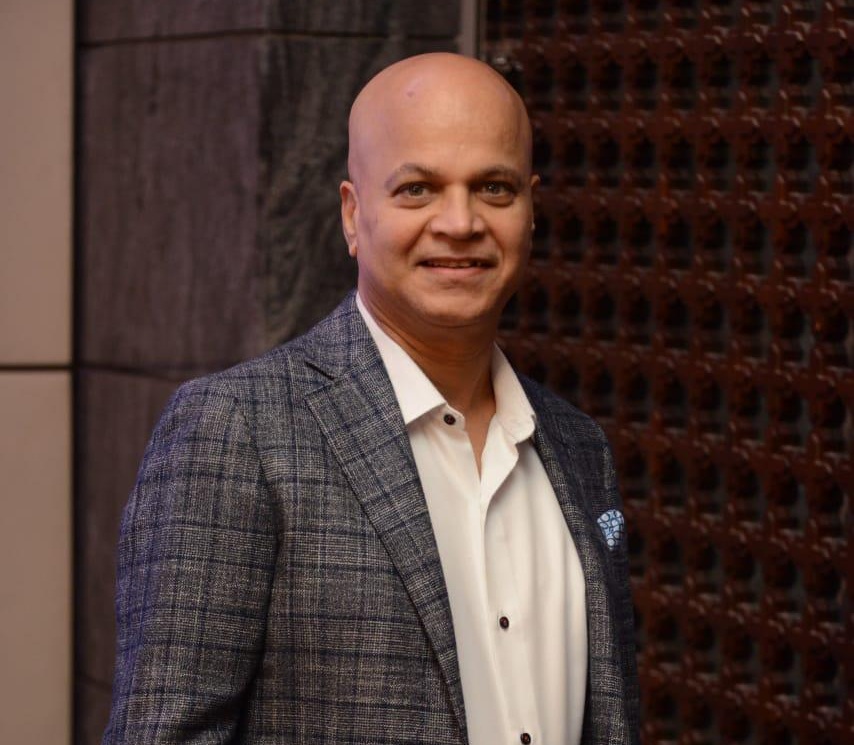 What’s more, responding to the company’s expansion plans, Koparkar revealed, that IAC Group, in addition to introducing new products, is also in talks with new-age players who have just entered Indian market (and also planning too) for supplying products.
What’s more, responding to the company’s expansion plans, Koparkar revealed, that IAC Group, in addition to introducing new products, is also in talks with new-age players who have just entered Indian market (and also planning too) for supplying products.
Currently, passenger vehicles account for roughly 90 percent of the business, with commercial vehicles forming the balance. Value-wise, Koparkar expects CV contribution to rise, even if percentage splits remain broadly similar due to the rapid growth of PV volumes.
Responding to a query on the potential growth from the CV segment, Koparkar said, “There is clear potential in CV interiors. As the CV market moves towards more comfortable cabins — with features like airbags, HVAC and infotainment — the opportunity for interior suppliers increases. Through Volvo Eicher, we have already helped drive that trend in India.”
When asked about the company’s expansion plans, Koparkar also stated that IAC Group is open to expanding to new regions as it aims to operate closer to its customers. One of the potential new projects for the company could very well be Chennai, as the company is in early talks with a new CV customer as well as VinFast.
Engineering as a Standalone Growth Lever
A key pillar of IAC India’s strategy is its expanding engineering capability. The company has been scaling up its R&D and product development team and increasingly positioning engineering services as a distinct revenue stream.
The company at present, employs over 300 engineers in India, which it aims to scale it upto 400-plus by next year and 500-plus in the coming few years.
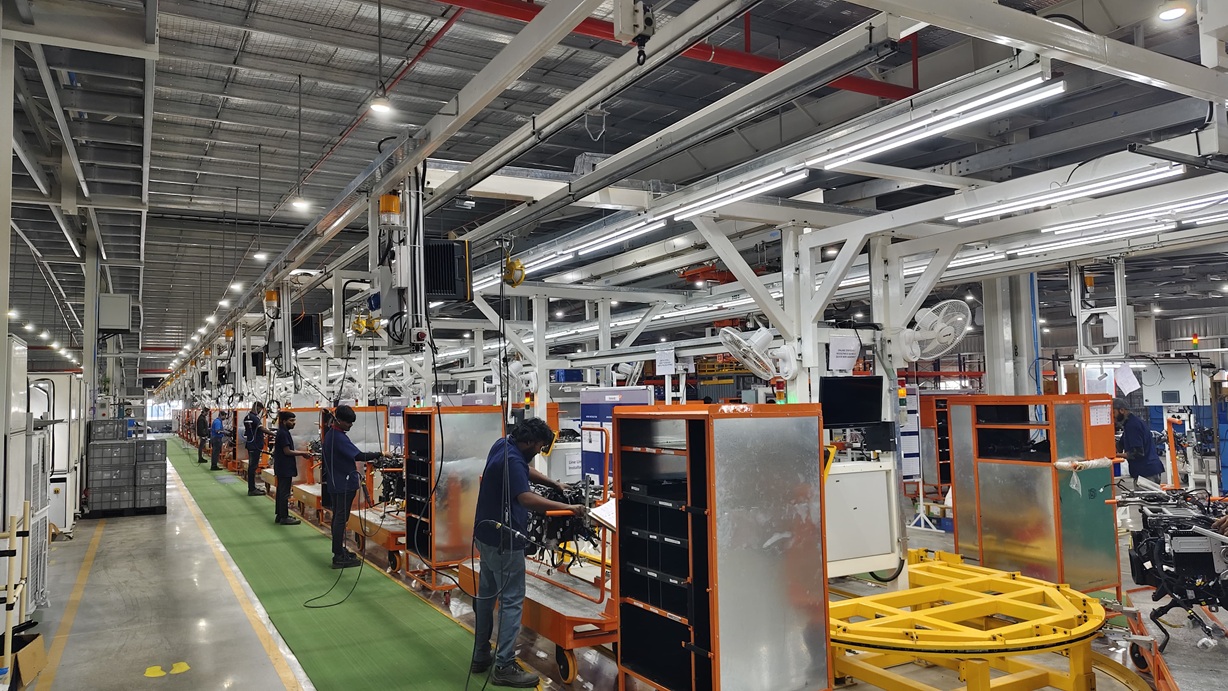
Historically, the Indian Engineering Centre supported the global IAC Group. “We were primarily the IAC Group engineering development centre. We will continue to provide those services. But now, besides global support, we are also offering engineering services to local OEMs,” Koparkar explains.
These services span studio collaboration, basic product design, CAE analysis and prototype development. In some cases, this can potentially evolve into full-scale supply programmes.
Importantly, innovation is now being formalised locally. “This year alone, we are in the process of filing about 30 patents,” he says. Earlier, intellectual property was subsumed under the global entity; now, filings are being initiated in India.
R&D investment remains aligned with group benchmarks at around 1.5–2 percent of revenue.
Exports: Measured Ambition
In terms of export potential, it currently contributes less than 5 percent towards the revenue, primarily through smaller kinematic parts. Direct exposure to the US market is negligible.
“Tariff-related uncertainty does not affect us because we do not export to the US,” Koparkar says. “Logistically, it does not make sense to ship our large interior parts there.”
Europe remains the primary export target. “The opportunity lies in leveraging our design capabilities and local development strengths. If logistics can be managed efficiently, there is room to grow.”
He also sees the Lumax Group’s aftermarket division as a future vehicle for export expansion.
Localisation and Supply Chain Resilience
On the localisation front, IAC India has made significant progress. “Last year was the first time we were able to localise over 99 percent of our tooling and development in India,” Koparkar states. Machinery on shop floors is largely localised, with only certain raw materials still imported.
The semiconductor crisis, he adds, had minimal direct impact. “We do not source electronics for our products — that is handled by the customer. However, from a development perspective, we are evaluating secondary substitutes for imported components, so we are prepared in case of disruptions.”
Premiumisation, Sustainability and AI
Premiumisation is currently the dominant interior trend. “Customers are moving away from basic plastics to more premium-feel interiors. Electronification is a big driver,” Koparkar says.
Sustainability, however, remains nascent in India. “There is no specific push for sustainable materials yet. What OEMs are looking for is lightweighting to meet upcoming CAFE norms. If a sustainable material delivers significant weight reduction, then it becomes serious.”
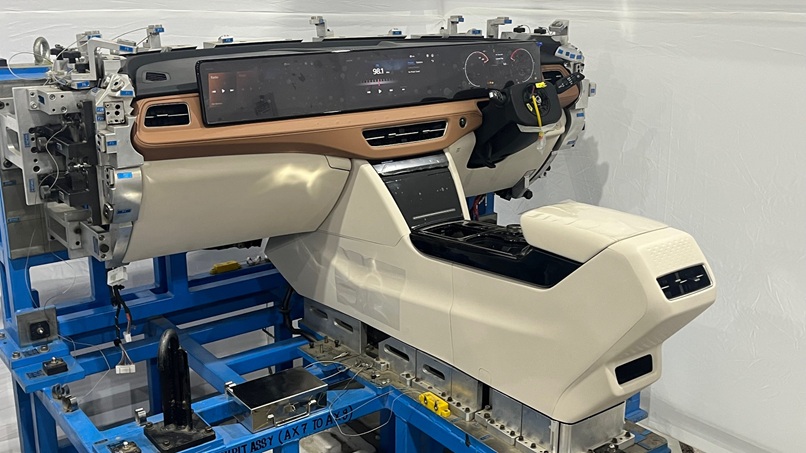
He points to jute, coir and bamboo fibres as potential alternatives but stresses that ecosystem-level collaboration is essential. “Unless a circular economy develops around us, sustainable materials will struggle to scale.”
On automation, operations across IAC’s six plants are roughly a 50:50 mix of automated and manual processes, depending on volume justification. Cobots and semi-automation are used where full automation does not offer viable returns.
AI, meanwhile, is expected to influence design more than manufacturing. “We see AI helping us accumulate design learnings and reduce design cycle times. Its impact will be more visible in engineering services than on the shop floor.”
Faster Development Cycles
Product life cycles are shrinking rapidly. “It used to take five years to develop a car,” Koparkar reflects. “With the XUV700, we worked with the customer to shrink that to 42 months. EVs are being developed even faster.”
As development timelines compress and interiors become more technology-intensive, IAC India is betting on engineering depth, localisation strength and group synergies to sustain its 20 percent growth ambition – while steadily broadening its customer and geographic footprint
- Rosmerta Technologies
- The Curious Bunch
- CII National Conclave on Road Safety
- Dr Rajesh Mohan
- Ravi Krishnamoorthi
- road safety
Rosmerta Launches Road Safety Comic Book For Schools
- By MT Bureau
- February 27, 2026
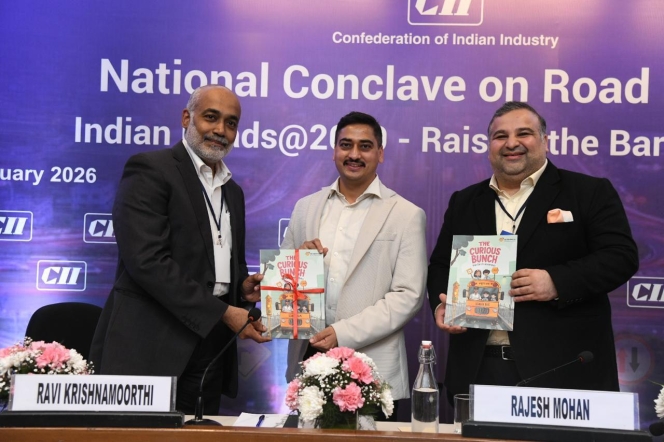
Rosmerta Technologies has launched a comic book titled ‘The Curious Bunch’ at the 3rd Edition of the CII National Conclave on Road Safety. The publication is designed to introduce road safety awareness to children.
The initiative aligns with the Government of India’s ‘4E’ strategy for road safety, which focuses on Engineering, Education, Enforcement and Emergency Care. The comic book aims to address the 168,000 road fatalities reported in India in 2022 by fostering safe habits at a school level.
The comic book uses illustrations to present road scenarios, including pedestrian conduct, school bus safety, traffic signals & the use of helmets, seatbelts and child restraint systems. By educating children, the company intends to influence the behaviour of parents and the wider community.
Rosmerta, a provider of mobility solutions, currently operates technology systems for automated driving tests and AI-based monitoring. The launch of ‘The Curious Bunch’ marks an expansion of its activities into the education pillar of the national safety framework.
Dr Rajesh Mohan, DCP, Gurugram Traffic, said, “When we educate children and instil strong moral and ethical values, the impact travels far beyond the classroom. Children naturally share what they learn. They question, they explain, and they influence conversations at home. In many ways, they become powerful advocates, encouraging their parents to be more aware, more responsible, and more engaged. Over time, this awareness translates into action, because parents are also drivers, commuters, and decision-makers on the road.”
Ravi Krishnamoorthi, Group President, Rosmerta Technologies, said, “Every road accident statistic hides a parent’s anxiety. In 2022 alone, India reported over 168,000 road accident fatalities, according to government data. Road safety is not merely about compliance; it is about compassion and collective responsibility. When a child understands why a red light matters or why a helmet can save a life, they don’t just learn a rule - they become ambassadors of safety within their families and communities. Through ‘The Curious Bunch’, we aim to nurture this awareness early, because the habits we shape in children today will define the safety culture of our nation tomorrow.”
- Maruti Suzuki India
- Transport Department of Tamil Nadu
- Automated Driving Test Tracks
- ADTT
- M K Stalin
- RTO
- CMVR
- Rahul Bharti
Maruti Suzuki Commissions Seven Automated Driving Test Tracks In Tamil Nadu
- By MT Bureau
- February 27, 2026
Maruti Suzuki India, in partnership with the Transport Department of Tamil Nadu, has announced the commissioning of seven Automated Driving Test Tracks (ADTTs) in the state. The facilities were inaugurated by the Chief Minister of Tamil Nadu, M K Stalin.
The tracks are located at Regional Transport Offices (RTOs) in Coimbatore (Central), Tiruvannamalai, Krishnagiri, Madurai (North), Sivagangai, Dindigul, and Tiruchirappalli (West). These sites form part of a Memorandum of Agreement to automate ten tracks across the state, with the remaining three at Tirunelveli, Tuticorin and Marthandam scheduled for operation shortly.
The ADTTs are designed to evaluate applicants for two-wheeler and Light Motor Vehicle (LMV) licences. The system removes human intervention from the evaluation process to ensure objective testing according to the Central Motor Vehicle Rules (CMVR).
Key technical components include:
- Video Analytics: High-definition cameras to monitor vehicle movement and path adherence.
- Sensors: Radio Frequency Identification (RFID) and Harnessing AutoMobiles for Safety (HAMS) technology.
- Identification: Face-recognition systems to verify candidate identity.
- Results: Integrated IT systems that generate test results automatically based on real-time data.
The carmaker has commissioned 56 ADTTs across eight states, including Uttar Pradesh, Delhi, and Bihar. Following the completion of agreements with Rajasthan and Andhra Pradesh, the company’s footprint is expected to reach 81 tracks nationwide.
Rahul Bharti, Senior Executive Officer, Corporate Affairs, Maruti Suzuki India, said, “As part of Maruti Suzuki’s road safety initiatives implemented across multiple states, we are partnering with the Government of Tamil Nadu to strengthen the driver licensing evaluation process through the deployment of 10 Automated Driving Test Tracks (ADTTs). Equipped with high-definition cameras and advanced analytics, these ADTTs enable a comprehensive, efficient, and transparent assessment process. It eliminates any human bias and ensures that only skilled drivers are awarded a license.”
“According to data shared by the Ministry of Road Transport & Highways, India witnessed 1.77 lakh road accident deaths in 2024. Promoting disciplined driving practices and ensuring rigorous driver evaluation are vital to prevent road accidents and augment road safety across the country,” he said.
BYD To sponsor BVRLA Annual Dinner 2026
- By MT Bureau
- February 26, 2026
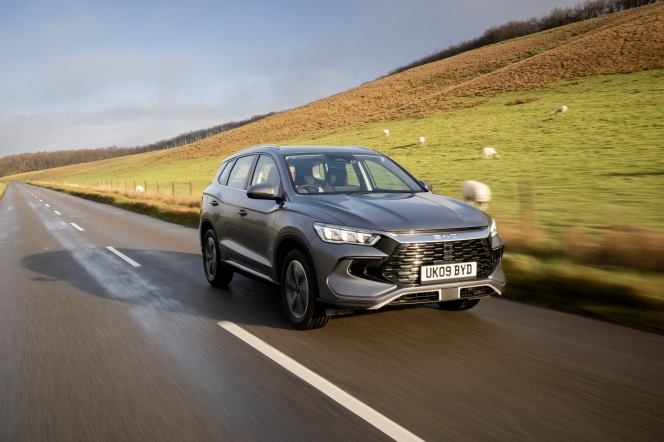
BYD, the world’s leading manufacturer of New Energy Vehicles, will once again serve as the headline sponsor for the British Vehicle Rental and Leasing Association (BVRLA) Annual Dinner in 2026. This marks the third consecutive year the company has supported the prestigious event, which is set to take place on 4 March 2026 at the JW Marriott Grosvenor House Hotel on Park Lane, London. The dinner is widely recognised as the premier gathering for professionals across the rental, fleet management and leasing sectors.
Through its ongoing sponsorship since 2024, BYD reaffirms its commitment to this vital segment of the UK automotive market. The company’s expanding presence was underscored in 2025 by the introduction of several new models, including the SEALION 7, DOLPHIN SURF, SEAL 6 Saloon and Touring and the ATTO 2. These launches contributed to significant sales figures, with 21,824 units delivered to fleet customers and 5,964 to the rental sector. The momentum has continued into 2026 with the debut of the SEALION 5 DM-i, while the ATTO 2 DM-i and ATTO 3 EVO are expected to arrive shortly. Supporting this growth is a dedicated UK fleet team of 11 specialists, offering tailored product and service expertise.
The BVRLA represents around 1,000 member organisations, ranging from SMEs to large public companies, all operating within or alongside the UK’s vehicle rental and leasing industries. By engaging with government and upholding professional standards, the association enables its members to provide safe, sustainable and accessible transport solutions. This year’s Annual Dinner will feature the presentation of the Industry Hero Awards and live entertainment from award-winning comedian Tom Ward, celebrating excellence across the sector.






Comments (0)
ADD COMMENT